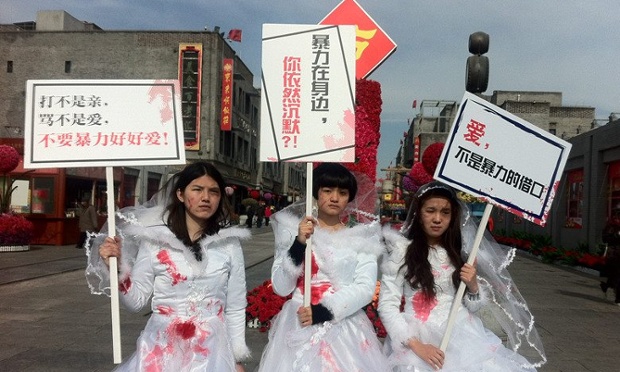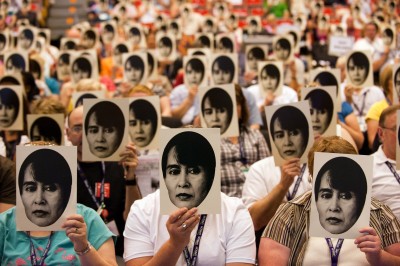
The Struggle for Gender Equality in China
In March this year, on the eve of International Women’s Day, five Chinese feminist-activists were detained on suspicion of ‘picking quarrels and creating a disturbance’ after it was discovered that they were planning to distribute stickers and slogans highlighting sexual violence. Their plight caused outrage around the world and they were released from detention after thirty-seven days, but remain under investigation and may still faces charges.
read more
Malcolm Turnbull’s confidence trick
The vitriol with which much of the liberal mainstream media responded to Tony Abbott’s Margaret Thatcher memorial speech last month confirmed what many rightwingers have been claiming: that the scorn towards the former PM was a result of his conservative social values and that the problem was not his policies, but rather, his inability to sell them.
read more
America’s Next Mass Shooting Is Right Around The Corner. But What About Australia’s?
While the slaughters continue in the United States, Australian gloating at our lack of mass shootings is more than a little misdirected. Tim Robertson explains.
read more
Aung San Suu Kyi and Burma’s Long Road to Democracy
“A share in two revolutions”, Thomas Paine wrote to George Washington in 1789, “is living to some purpose!” That same sentiment may well be applied to the Burmese leader Aung San, who didn’t just share in two colonial struggles, but led Burma’s battles for independence against both the British and the Japanese.
read more
If only gender-based violence really was unAustralian
At the first major policy announcement of his tenure, Prime Minister Malcolm Turnbull’s rhetoric echoed that of John Howard: violence against women, he said, needs to be seen as ‘unAustralian’.
But Australianess is a fluid concept that means different things to different people — for example, the republican Turnbull’s conception of it is fundamentally different to the constitutional monarchist Howard’s.
This suggests that one’s sense of what it means to be Australian entails selecting only certain elements of our past. Often, it means taking the good and ignoring the bad.
read more
Why calls for compassion for refugees don’t work
We live in a society in which economic rationalism predominates and those who simply discount or dismiss economic arguments around migration policy risk being ignored. There is something abhorrent about reducing the life of an asylum seeker to a dollar amount on a balance sheet. For this reason, it’s important that an economically-minded approach doesn’t replace calls for more compassion, but operates alongside it.
read more